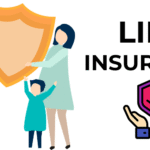Why Insurance Can Be a Lifesaver in an Emergency
Emergencies never come. They don’t wait for you to be ready or issue a warning. They simply occur; they are costly, filthy, and quick. Life seems normal for a moment. The next, you’re frantically trying to find explanations, solutions, or worse, money that you don’t have.
I’ve personally witnessed it. The home of a friend caught fire. After a minor bike accident turned serious, a cousin ended up in the hospital. In a flood, a coworker lost their vehicle. In each instance, two questions arose right away: What now? Additionally, how will we pay for this?
At this point, insurance becomes more than just a monthly withdrawal or some paperwork. When things go wrong, it becomes your contingency plan, your emergency response, and your financial buffer.
Fear is not the issue here. It all comes down to being astute, organized, and realistic. Here are some reasons why insurance, whether it be health, auto, property, or even life insurance, can be a lifesaver and why you should consider it carefully before you find yourself in dire need of it.
Click to get insurance consultation
There will inevitably be emergencies; the question is, are you prepared?
Everybody hopes that nothing negative ever occurs. But let’s face it, things happen in life. Natural calamities, theft, illness, fire, accidents, or even untimely death. The world we live in includes these things.
Why Insurance Can Be a Lifesaver in an Emergency
Insurance transfers the financial burden of “what if” scenarios on a system that is intended to safeguard you. You’re depending on luck without it. To be honest, chance isn’t a strategy.
Health Insurance: When You Could Be Bankrupted by Hospital Bills
Let’s begin with health insurance, which is the most evident and important type of insurance.
Let’s say you unexpectedly require surgery. Or your child wakes up in the middle of the night with a high temperature. Your chest tightens more than the illness ever did when you arrive to the hospital in a hurry and are presented with a bill.
The cost of healthcare is high. The cost of even simple medical care or prescription drugs can mount up rapidly. Your money, months’ worth of rent, or worse, debt, could all be lost in a single emergency.
Those expenses are greatly decreased with health insurance. You may just pay a little amount or nothing at all, depending on your policy. This implies that you or your loved one can receive the care they require quickly, calmly, and without compromising other aspects of your life.
Auto Insurance: When an Accident Occurs in a Matter of Seconds
Even if you are the most cautious driver in the world, you have no influence over other drivers.
In an instant, an automobile accident can occur. In addition to the bodily harm—which is frightening enough—there are also potential legal issues, hospital stays, police reports, and auto repair expenses. Every aspect of that process falls directly on your shoulders—and your wallet—if you don’t have insurance.
Imagine the same scenario now, but with enough auto insurance. The fixes? Taken care of. Wounds? handled. Legal issues? Handled. You are supported by a system rather than anarchy. That is the strength of planning.
Property Insurance: In the Event of a Threat to Your Safe Space
Your house is more than just your residence. It’s your mental tranquility. your zone of comfort. However, what would happen if your home was damaged by a storm, a fire, or a break-in?
I’ve witnessed folks lose everything in a matter of minutes, including clothes, appliances, furniture, and documents. They had to start over without any assistance because they lacked renter’s or property insurance.
However, there is hope if you have a decent insurance coverage. For your loss, you are compensated. You bounce back more quickly. Instead of begging or borrowing to get by, you can concentrate on getting better and rebuilding.
Life Insurance: In the Event of the Unimaginable
Let’s discuss death, which is an unsettling topic.
Nobody wants to consider it. In actuality, though, it does occur—sometimes unexpectedly. Beyond the emotional loss, the true sorrow occurs when families are left without money as a result of the loss of the person they relied on.
Life insurance can help with that. It’s not for the deceased person. It is for those who have been left behind.
A payoff from life insurance can:
- Pay for the funeral costs.
- Repay any outstanding loans or debts.
- Make money for your spouse or kids.
- As they grieve, assist them in maintaining their quality of life.
It’s a last act of affection. A method of saying, “Even if I’m not here, I’ve got you.”
Emergency Assistance and Mental Calm
Money isn’t the only factor in insurance. It has to do with emotional stability.
Your mind is racing when calamity hits. There is doubt, dread, and confusion. You lack clarity in your thinking. Support is urgently needed.
Numerous insurance companies provide roadside assistance, legal support, emergency services around-the-clock, medical referrals, and temporary housing. That is a lifeline, not just paperwork. A steady voice in the midst of chaos. a strategy when you’re feeling lost.
Having insurance indicates that you are making life plans, not that you are anticipating the worst.
Because they don’t want to “jinx” themselves, some people steer clear of insurance. “I’ll be fine,” they say, or “It’s just a waste of money.”
However, the reality is that insurance isn’t about anticipating the worst. It’s about getting ready for the real world.
We purchase umbrellas because we know it might rain, not because we wish it will. Here, the same reasoning holds true. While insurance ensures support, it does not ensure safety.
You don’t need all insurance, and not all insurance is costly.
To be clear, not everyone is a good fit for every policy.
It’s not necessary to insure everything. Furthermore, not all insurance is exorbitantly costly. Finding insurance that covers the things you value most—your house, your family, your income, and your health—is crucial.
Examine different plans. Examine the fine print. Pose inquiries. Never hesitate to consult an agent or seek a second perspective. You’re not acting suspiciously. You’re taking the initiative.
In Conclusion
Over the years, I’ve discovered that you don’t truly understand the significance of insurance until you need it, and by then, it’s sometimes too late.
Avoid having to learn the lesson the hard way in an emergency. You and your loved ones need protection; don’t let pride, delay, or presumptions keep you from getting it.
Invest in mental tranquility. Make a safety net to protect yourself from life’s unexpected turns. Don’t make insurance an afterthought; incorporate it into your actual emergency plan.
Because crises will arise. I just want to know if you’ll be prepared.










